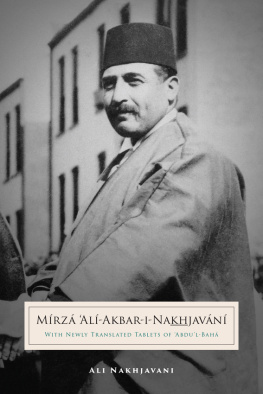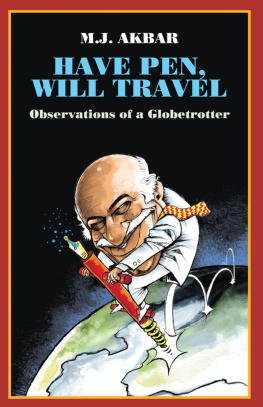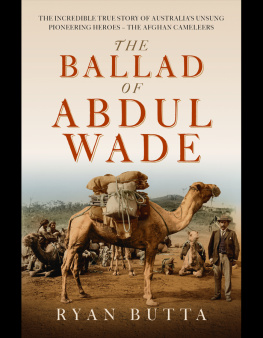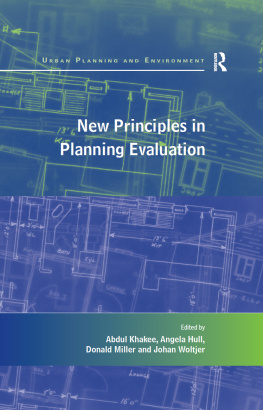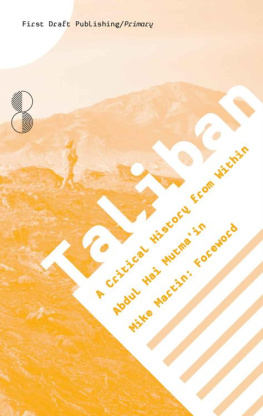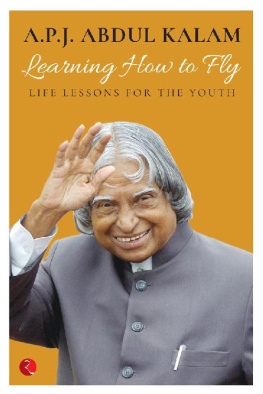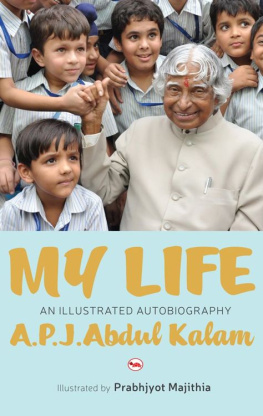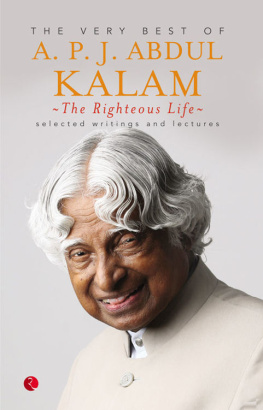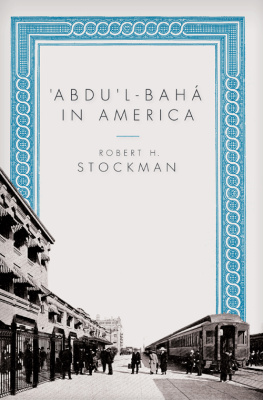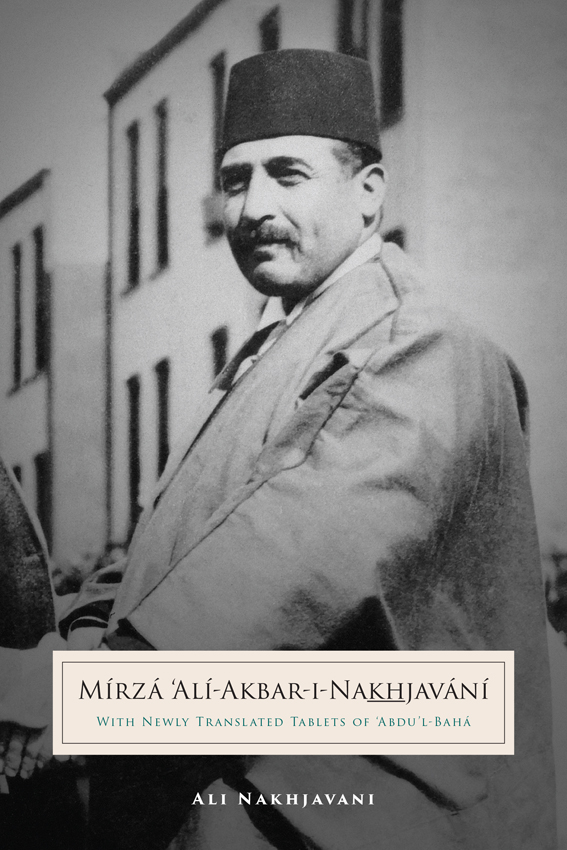Contents
Guide
Bah Publishing Trust
401 Greenleaf Avenue, Wilmette, Illinois 60091
Copyright 2018 by the National Spiritual Assembly of the Bahs of the United States
All rights reserved. Published 2018
Printed in the United States of America on acid-free paper
21 20 19 18 4 3 2 1
ISBN 978-0-87743-392-7
Cover design by Jamie Hanrahan
Book design by Patrick Falso
Contents
It had always been my wish to write a biography, however brief, of my father, Mrz Al-Akbar-i-Na kh javn. I knew he had received many Tablets from the Master, and when I later read some twenty-eight of these addressed to him by Abdul-Bah, including a beautiful eulogy in the form of a prayer revealed in his honor, after my fathers passing, I felt that even if I was unable to do justice to his services to the Faith, these precious words, at least, should be shared with the friends.
Unfortunately since my many commitments to the Faith took priority, all I could do, over the course of the past decades, as a youth and later as an adult member of the Bah community, was to assemble as much information as I could about his cultural roots, his family, his travels, his services, and his relationship to Tolstoy. Many of these facts my older brother, Jalal, and I had heard from our mother; many I was able to extract from Bah and nonBah publications as the years went by. And I depended on the research of several other people for this material too, such as Jan Jasion.
Were it not also for the persistence of my grandson, Amir Sam Nakhjavani, such historical details linking my father to the great Russian writer, for example, would not have seen the light of day. I owe great thanks to him, and to all those who helped me fill the file dedicated to Mrz Al-Akbar-i-Na kh javn.
Finally, when I was invited to visit the United States for the centenary celebrations of Abdul-Bahs visit to the West, I realized that I should put these scattered notes in order so as to give some coherence to my fathers story. I was, after all, traveling on his credit card, so to speak! I was following in the footsteps of the man I had been encouraged to emulate since childhood. Perhaps the time had come to share what I had learned of himthis distinguished looking person whose name so few people knew, standing respectfully behind the Master and gazing quietly at them from the old photographs.
The first person who seriously offered to help me in this daunting endeavor was Noemi Robiati. She was kind enough to type up all the notes I had been making and put together my scattered annotations gathered over the years. She gave these fragments a concrete form for the first time by writing everything up in its historical and logical order.
Then I was given the greatest help by Mark Hellaby, who generously offered to translate, in his excellent and precious style, the Tablets written to my father by the Master. At his own kind and even more important suggestion, Mark also painstakingly researched all the background details embedded in these Tablets and produced lengthy annotations which provide invaluable information on individuals, locations, and events mentioned in them.
But even then, the book in its present form would never have taken shape had it not been for my granddaughter Mary Victoria, without whose sensitivity and respect, talented pen and disciplined mind, all this material could never have been assembled, shaped, and consolidated into the present document. I am also indebted to my daughter, Bahiyyih, for the logistics of getting this little book into print.
These acknowledgments would be incomplete, moreover, were I to omit mentioning all those who encouraged me over the years to write the story of the character and services of Mrz Al-Akbar-i-Na kh javn. To all of them, and above all to my mother who was the first to tell me of the father I never knew in this life, I owe a great debt of gratitude.
Ali Nakhjavani
Molsheim, France
My father, Mrz Al-Akbar-i-Na kh javn, was born in 1865, in what is now the autonomous Republic of Na kh javn (Nakhichevan). He went on to live and work in Bk for several years, as well as travel extensively in the Near East. He was also memorably given the opportunity to travel to the United States in the company of Abdul-Bah. His life, though cut short at the early age of fifty-five, spanned great changes in his native land, from the burgeoning prosperity of oil-rich Bk at the start of the twentieth century to the upheavals of the First World War and the Bolshevik Revolution. Throughout these times of transformation my father remained true to his spiritual roots, flexible and forward thinking in his outlook, intellectually curious, and a lover of language and literature. He translated many of the Bah Tablets into Russian, and became a passionate teacher of the Bah Faith, both in his own home and in the regions he visited. Indeed, that new religion would feed his lifelong desire for intellectual investigation and inquiry.
For progress, innovation and inquiry were the order of the day in late nineteenth- and early twentieth-century Caucasia. Like many of his contemporaries, Mrz Al-Akbar witnessed a revolution of economics and mores in his native land as the development of the oil fields near the Caspian sea, auctioned off to prospectors by the Tsarist authorities, brought technological and social change. The municipalities of Bk and Na kh javn developed into centers of culture, while Bk in particular was the powerhouse of a new oil-fired economy, a resolutely modern city that by 1911 produced a fifth of all the crude oil used in the world. In the midst of this crucible of material innovation, the people of Azerbaijan had their own tradition of spiritual and intellectual independence. In order to understand the influences that formed my fathers character, it is useful to briefly examine the philosophies espoused by his family and community over the preceding century.
In one of His Tablets, Abdul-Bah calls Caucasia the Land of the Prophets, alluding to its importance to religious history. When He was asked to explain why the Qurn contained allusions to previous Manifestations but not to Zoroaster, Abdul-Bah said that where Muammad mentions the people of Aras, He is referring to Zoroastrians, and that the Ras mentioned in the Qurn is the river Aras, a reference to Zoroaster Who lived in the area. One of the surahs of the Qurn begins with the letter Qf, and Abdul-Bah states that this Qf is a reference to Qafqz (i.e. Caucasia), shedding light on the spiritual significance of the region.
Nineteenth-century Caucasia was without doubt a hotbed of new religious ideas as well as social innovation. Since the birth of the Sh ay kh movement in Iran in the late eighteenth century, thousands of people had been awaiting the Promised One, the return of the Islamic Qim who was to bring peace and justice to the world. This messianic movement had spread across the northern borders of Iran into Azerbaijan, and so to the region of Na kh javn where the first Sh ay kh leader, Mull diq, established himself in Urdbd. Through Mull diq, Shaykhism spread to all of Na kh javn and to the region of Zangezur, where some 10,000 people are reported to have become followers of Sh ay kh Amad-i-As. The rest of the population vehemently opposed what they considered to be a heretical sect, while the ensuing unrest prompted the Russian authorities to exile Mull diq Urdbd to Warsaw.
After the mulls departure, another local cleric by the name of Siyyid Abdul-Karm began promulgating Sh ay kh ideas in Urdbd, teaching of the imminent appearance of the Islamic Qim. Bahullh, in one of His Tablets known as the Law-i-Qafqz (Tablet of the Caucasus), makes reference to this Siyyid, praising his spiritual gifts and insight. Fearful of the commotion engendered by his ideas, the authorities first held Abdul-Karm prisoner in Bk and finally, as enthusiasm for Shaykhism continued to grow, exiled him to Smolensk. But they could not contain the movement for long. Soon after losing their beloved leader, the disheartened Sh ay kh community in Urdbd received news that the Bb had declared His Mission in Shrz, Iran: their Promised One had come.
Next page
